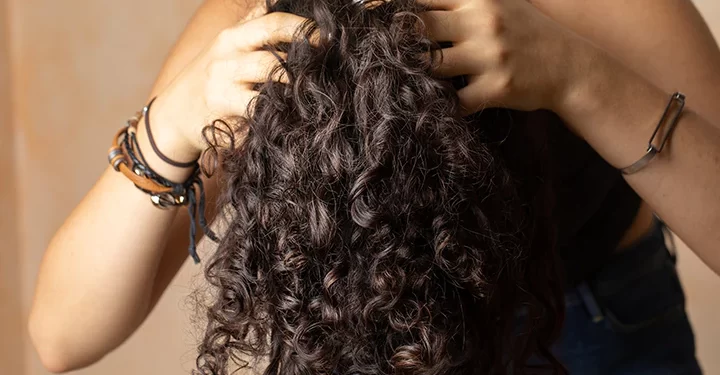Healthy hair is an ever-cherished dream, something that has surpassed centuries and continents. No sight is more majestic than a satiny, healthy, luxurious hair being caressed by the breeze. Hair is one of the distinctive Mammalian features, passed on to us by our ancient forebears. But rather than an evolutionary advantage, these days, the hair is viewed as a symbol of splendor and elegance, giving it the term ‘crowning glory'.
Hair is one quality we admire in others but often neglects in ours. Colour, thickness, volume, and texture are the four concerns when it comes to hair health. Hair loss, dandruff, scalp infections, premature greying, split ends, roughness, etc are some of the common challenges faced by our hair, irrespective of gender. Diminished hair health can be a symptom of any underlying pathology like stress, alopecia, thyroid dysfunction, hormonal imbalance, and nutritional deficiencies, and is important to get diagnosed early. Other causes include excess application of chemical-based hair products, continuous hair treatments, a diet that lacks nutritional value, alcoholism, air pollution, chronic exposure to sunlight and dust, tight hairstyles, and certain medications.
Ayurveda considers Kesha or hair as a mala of asthi dhatu. Ever wondered why hair is seen differently in different people? Ayurveda answers this with the concept of ‘prakriti' or physical constitution. Prakriti can be correlated to the genetic makeup and is mediated by three doshas vata, pitta, and kapha. The quantity of each dosha is assigned at the time of birth and cannot be altered ever. A person with vata predominant prakriti will always be vata predominant, and the same goes for the other doshas too. So each dosha predominant prakriti will have certain unique characteristics, including the type of hair. A person with vata predominant prakriti tends to have scanty dry and rough hair due to the ruksha and khara gunas of vata dosha.
A pitta predominant individual will be having moderate soft, brown hair and is vulnerable to premature greying. Kapha prakriti could be considered more lucky in hair health- due to the snigdha (nourishing), sheetha (cold), mridu (soft), and slakshna (smooth) gunas of kapha, they are bestowed with luscious deep-rooted shiny black hair. Yet, secondary factors like the things one indulged in heavily influence the health of their hair. One cannot change their genetics, but one can surely amend their diet and lifestyle.
Supplementing your body with enough nutrition has multidimensional effects- only a healthy body can host healthy hair. Ayurveda calls such hair-friendly factors ‘keshya'. A lot of active principles in plants are proven to be keshya. Amalaki (Emblica officinalis), Khadira (Acacia catechu), Bhringaraja (Eclipta alba), Chitraka (Plumbago zeylanica), and Kasisa bhasma (purified ferrous sulfate) are some examples. Narasimha rasayanam is an amalgamation of the above-mentioned ingredients, and a lot more that can save your hair from grave damage. It not only acts as a hair tonic but corrects the overall metabolism and facilitates toxin removal from the body. This formulation prevents skin diseases and restores the natural complexion. It slows down the signs of aging such as wrinkles and smoothes the skin. It has a rasayana property that helps rejuvenate the tissues and strengthen the body from the core. Regain the youth of your hair and skin through Narasimha Rasayanam.
























